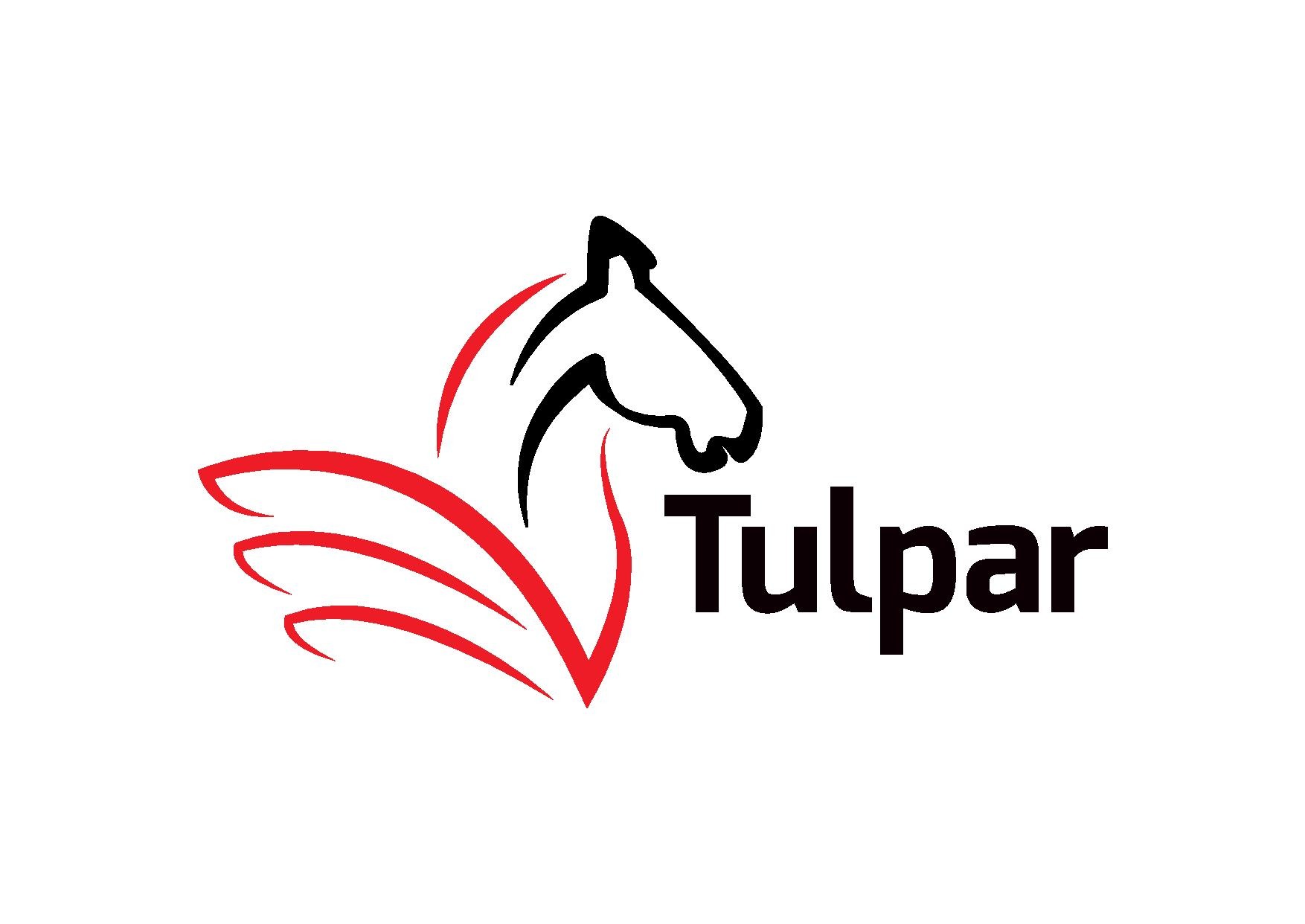
Table of Contents
Related Articles


Let's Talk
Sign Up For Free Consultation
Corporate Tax for UAE Free Zone Companies
The UAE has long been recognized as a global business hub, offering an unparalleled tax-friendly environment and robust infrastructure to attract multinational corporations. For decades, its Free Zones have been a key pillar of this strategy, enabling businesses to operate with full foreign ownership and enjoy tax exemptions. However, with the introduction of corporate tax in June 2023, the landscape has evolved, aiming to align with international tax norms while preserving the region’s competitiveness. This shift reflects the UAE’s commitment to economic diversification and global transparency.
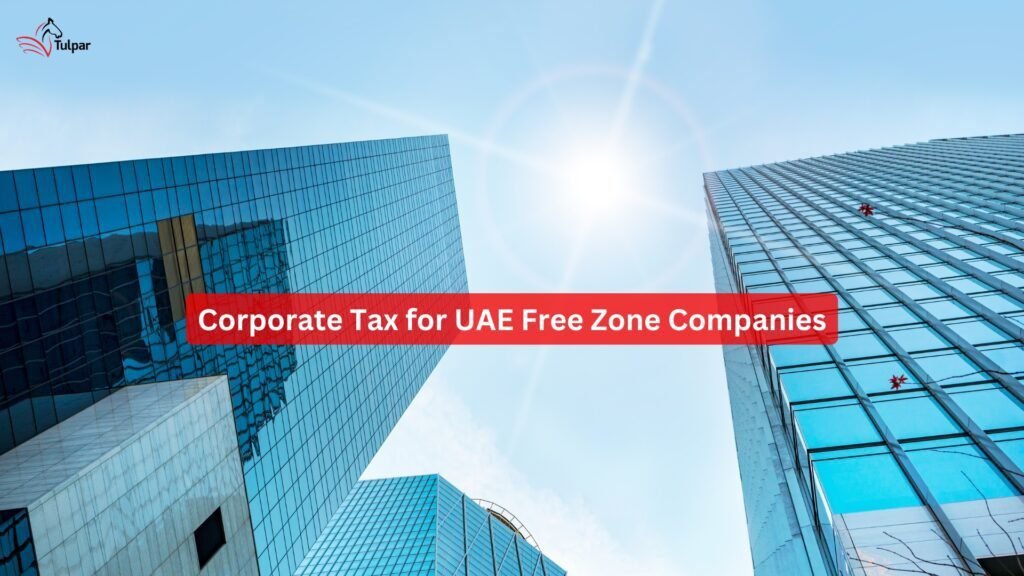

Corporate tax regulations for Free Zone companies balance encouraging foreign investment with ensuring adherence to international tax standards. Companies in Free Zones retain many benefits, including a 0% corporate tax rate on qualifying income, provided they meet specific conditions, such as Economic Substance Regulations (ESR) and limitations on excluded activities. This dual strategy ensures that Free Zones remain lucrative for businesses while addressing global tax compliance requirements, such as the OECD’s Base Erosion and Profit Shifting (BEPS) framework.
This article delves into the specifics of corporate taxation for Free Zone companies in the UAE. It outlines the qualifying activities eligible for tax exemptions, compliance requirements like tax filings and ESR adherence, and the distinct advantages of operating within designated Free Zones. By exploring these aspects, businesses can understand how to leverage the benefits of the UAE’s Free Zone framework while navigating the complexities of the new tax system.
Understanding UAE Corporate Tax Framework
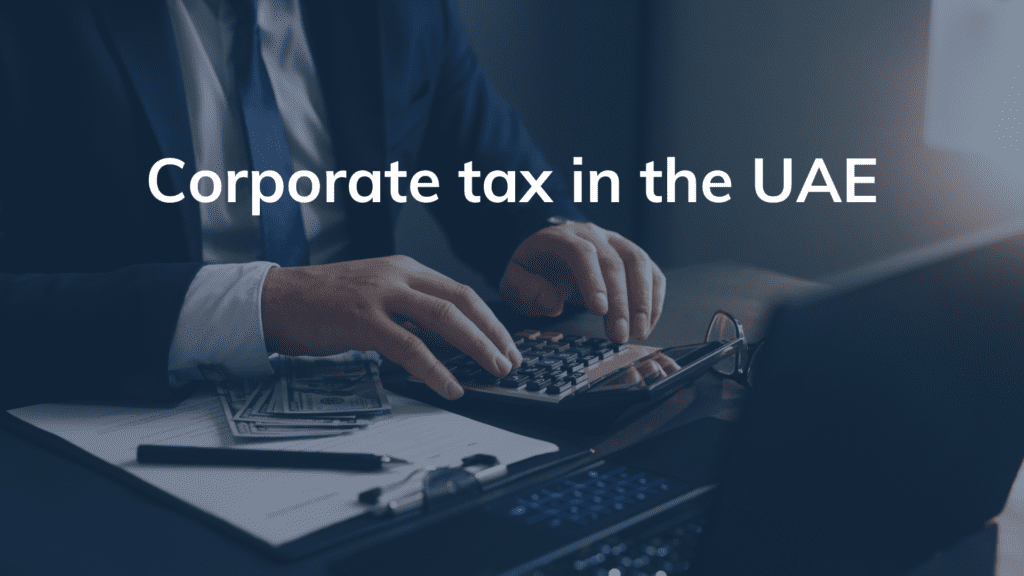

The UAE corporate tax framework is a milestone in the nation’s economic evolution. Introduced in June 2023, it seeks to align the country with international tax standards while maintaining its attractiveness as a global business hub. The framework applies to businesses across the UAE, including those in the Free Zones, ensuring compliance with the OECD’s Base Erosion and Profit Shifting (BEPS) initiative and fostering economic diversification. The tax rates remain highly competitive, with 0% applied to taxable income up to AED 375,000, encouraging startups and small businesses. For taxable income exceeding this threshold, a 9% corporate tax rate is levied, while certain multinational enterprises are subject to a 15% rate under global minimum tax rules.
This corporate tax framework balances the UAE’s goals of promoting transparency and supporting economic growth. Specific exemptions and benefits are available to companies operating in Free Zones, provided they engage in qualifying activities and adhere to Economic Substance Regulations (ESR). This dual approach—competitive rates and rigorous compliance—ensures that the UAE remains a desirable destination for investment while aligning with global tax policies. Companies operating in the region must now adopt meticulous tax planning and compliance strategies to leverage these advantages fully and avoid penalties.
Why Introduce Corporate Tax in UAE?
The UAE introduced corporate tax for several reasons:
- Economic Diversification: The UAE seeks to reduce its reliance on oil revenues and expand its economic base, ensuring long-term stability and growth.
- Global Alignment: By introducing corporate tax, the UAE complies with global initiatives such as the OECD’s Base Erosion and Profit Shifting (BEPS) project, ensuring its position as a responsible international financial center.
- Transparency and Governance: Corporate tax supports improved transparency in financial reporting, enhancing investor confidence.
Key Features of UAE Corporate Tax
The corporate tax system in the UAE is designed to be business-friendly while promoting fairness:
- Tax Rates:
- 0% on taxable income up to AED 375,000: Designed to support startups and SMEs.
- 9% on taxable income above AED 375,000: Among the lowest tax rates globally, attracting multinational corporations.
- 15% for multinational corporations under OECD guidelines: Aligning with the global minimum tax rate for qualifying entities.
- Scope of Tax: Applicable to UAE-incorporated companies, foreign entities with a permanent establishment in the UAE, and individuals engaged in business under a UAE commercial license.
Corporate Tax for Free Zone Companies


Free Zone companies in the UAE continue to enjoy unique advantages under the new corporate tax regime, particularly the 0% corporate tax rate on qualifying income. This preferential treatment makes Free Zones a highly attractive option for businesses looking to establish a presence in the UAE. Qualifying activities typically include manufacturing, trading, logistics, reinsurance, and certain financial services, among others. However, companies must meet stringent compliance requirements, such as adhering to Economic Substance Regulations (ESR) and ensuring minimal involvement in excluded activities. Transactions with the UAE mainland or activities classified as non-qualifying, such as banking or insurance services, may attract the standard corporate tax rate of 9%.
Despite the tax reforms, Free Zones remain a cornerstone of the UAE’s economic strategy. Designated Free Zones offer additional benefits, such as customs exemptions and simplified operational requirements. Businesses operating in these zones can maintain their tax-free status while engaging in international trade or inter-Free Zone transactions. However, understanding the distinction between qualifying and excluded activities is essential for ensuring compliance and optimizing tax benefits. Companies must be diligent in their operations and record-keeping to retain the advantages of the Free Zone framework under the new tax system.
What Are UAE Free Zones?
Free Zones in the UAE are designated areas specifically designed to attract businesses and investors by offering unparalleled benefits and incentives. These zones operate under their own regulatory framework, distinct from the mainland, providing businesses with a streamlined environment to grow and thrive. One of the most notable advantages is 100% foreign ownership, allowing investors to maintain full control over their companies without needing a local sponsor or partner. This is particularly attractive to foreign businesses looking to establish operations in the UAE while retaining complete autonomy over their decision-making and profits.
In addition to ownership benefits, Free Zones provide simplified customs procedures and tax incentives, making them ideal hubs for trade, logistics, and manufacturing. Companies operating within these zones can benefit from a 0% corporate tax rate on qualifying income, enabling them to maximize their profits and reinvest in growth. The ease of doing business is further enhanced by the absence of import and export duties on goods traded within the Free Zones or re-exported internationally. These benefits, coupled with state-of-the-art infrastructure and strategic locations near airports, seaports, and key transport hubs, make UAE Free Zones a preferred choice for businesses seeking efficiency, profitability, and global market access.
Qualifying vs. Excluded Activities
- Qualifying Activities:
These include:
- Manufacturing and trading goods.
- Warehousing and logistics.
- Providing financial services to related entities.
- Holding securities or investments.
- Income derived from these activities qualifies for the 0% corporate tax rate, ensuring cost-effective operations.
- Excluded Activities:
Activities subject to a 9% tax include:
- Conducting business directly with the UAE mainland.
- Banking and insurance services.
- Real estate activities unless used for qualifying business purposes.
Economic Substance Regulations (ESR)
Free Zone companies in the UAE must actively demonstrate sufficient economic activity within the country to qualify for the 0% corporate tax rate and other tax benefits. This requirement is governed by the Economic Substance Regulations (ESR), which ensure that businesses genuinely contribute to the UAE’s economy rather than using the Free Zone framework solely for tax avoidance purposes. To comply with ESR, companies must meet specific criteria, including maintaining an adequate level of management, a physical presence, and operational resources within the UAE. For example, the company must have key management decisions made in the UAE, sufficient full-time employees for its operations, and access to necessary premises and equipment to carry out its activities effectively.
Failure to comply with ESR can have serious consequences, including significant penalties, reputational damage, and even the loss of the company’s Free Zone tax incentives. Businesses are required to file ESR notifications and reports annually, demonstrating compliance with the regulations. Authorities may conduct audits to verify that companies meet the required substance criteria, and non-compliance can lead to fines ranging from AED 10,000 to AED 300,000. Additionally, companies that fail to meet ESR requirements may no longer qualify for the 0% tax rate on their qualifying income, subjecting them to the standard 9% corporate tax. To avoid such outcomes, Free Zone companies must ensure meticulous record-keeping, strategic planning, and operational alignment with ESR guidelines, securing their eligibility for tax benefits while fostering economic growth in the UAE.
Compliance Requirements for Free Zone Companies


Free zone companies are subject to specific compliance requirements designed to ensure adherence to local regulations and international standards. These typically include maintaining proper financial records, timely renewal of business licenses, and adherence to labor and immigration laws specific to the free zone jurisdiction. Companies must also comply with anti-money laundering (AML) and counter-terrorism financing (CTF) regulations, filing economic substance reports, and adhering to relevant data protection laws where applicable. Non-compliance can result in penalties, suspension of licenses, or restrictions on business operations, making it essential for free zone companies to stay updated on evolving regulatory obligations.
Filing Tax Returns
Free Zone companies must adhere to a structured process for tax compliance:
- Annual Tax Returns: These must be filed within nine months of the fiscal year’s end. Late submissions attract penalties.
- Financial Record Keeping: Companies must maintain accurate financial records for a minimum of seven years, ensuring transparency and accountability during audits.
Importance of Transfer Pricing
Free zone entities must comply with transfer pricing regulations in line with OECD guidelines, which mandate that transactions between related entities be conducted at arm’s length. This ensures that pricing reflects market conditions and prevents profit shifting for tax advantages. To meet these requirements, companies must maintain detailed documentation of intercompany transactions, including pricing methodologies and supporting data. Proper compliance not only minimizes the risk of disputes with tax authorities but also helps avoid significant penalties, ensuring smooth business operations within the regulatory framework.
De Minimis Threshold
Free zone companies are permitted to engage in a limited scope of non-qualifying activities without jeopardizing their tax-free status. This allowance is capped at either AED 5 million or 5% of the total revenue, whichever is lower. If this threshold is exceeded, the company risks losing its tax exemption, subjecting its entire income to a 9% corporate tax rate. It is crucial for companies to monitor their activities carefully, ensuring compliance with these limits to maintain their preferential tax status while avoiding financial and regulatory repercussions.
Taxation in Designated vs. Normal Free Zones


In the UAE, free zones are classified into two categories: designated and normal free zones, each with different tax regimes. Designated free zones, often tailored for specific industries such as technology or finance, enjoy special tax incentives, including exemptions from corporate and income taxes for an extended period, sometimes up to 50 years. These zones are also typically exempt from VAT and customs duties, encouraging investment in specialized sectors. Businesses operating within these zones are subject to regulations that promote ease of doing business while benefiting from tax-free status, provided they meet the zone’s specific activity requirements.
On the other hand, normal free zones operate under a more general set of tax regulations. While these zones also offer corporate tax exemptions, the benefits are often more limited in scope compared to designated zones. Normal free zones may have fewer incentives for industry-specific businesses and are subject to a standard regulatory framework. Companies in these zones must ensure compliance with broader tax laws, including VAT and other applicable duties, while enjoying reduced or zero tax liabilities on their profits. The key difference lies in the level of incentives and the degree of flexibility, with designated free zones offering more specialized benefits based on the nature of the business.
Designated Free Zones
Designated Free Zones provide a range of enhanced benefits, including a 0% tax rate on qualifying income earned both within the zone and from international clients. In addition to tax advantages, these zones feature streamlined customs procedures that facilitate quicker and easier trade processes. Businesses operating within these zones also benefit from access to cutting-edge infrastructure, ensuring they have the necessary resources to support growth and innovation. This combination of financial incentives and logistical support makes Free Zones an attractive option for companies looking to optimize their operations and expand their global reach.
Normal Free Zones
Normal Free Zones generally follow similar tax structures to Designated Free Zones, offering benefits like tax exemptions. However, they impose additional restrictions on certain non-qualifying activities, especially those that involve the UAE mainland. These restrictions may limit the ability of businesses within these zones to engage directly with the mainland market or require specific permits or licenses. As a result, companies operating in normal Free Zones must navigate these limitations to ensure compliance while enjoying the tax advantages and other benefits offered by the zone.
Benefits of Free Zone Taxation
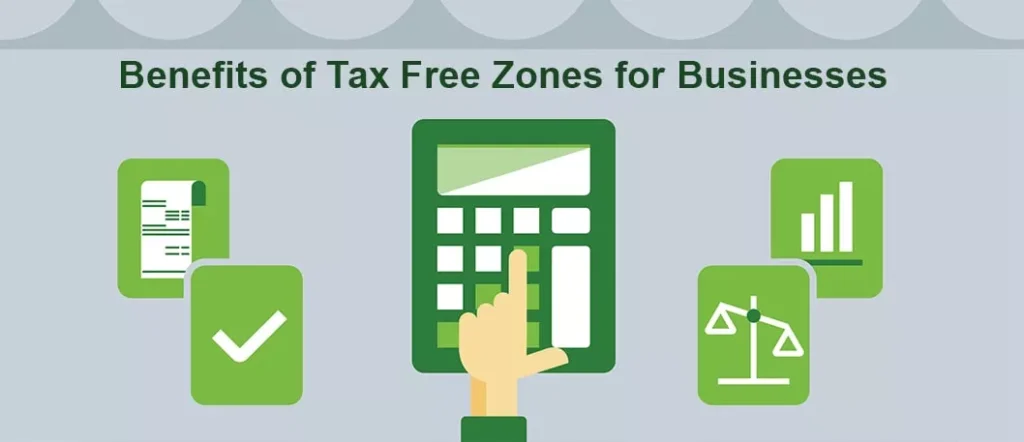

Free Zones in the UAE offer a range of tax benefits that make them highly attractive to businesses. One of the main advantages is the 0% tax rate on qualifying income, which applies to earnings both within the Free Zone and from international clients. This tax exemption can significantly reduce operational costs and enhance profitability, making it an ideal environment for companies focused on expanding their global presence. Additionally, businesses in these zones may be exempt from import and export duties, which streamlines trade and reduces overall transaction costs.
Along with tax exemptions, Free Zones provide businesses with simplified customs procedures and fast-track import/export processes. This can lead to faster clearance times and reduced administrative burdens, allowing companies to operate more efficiently. Furthermore, Free Zones are equipped with advanced infrastructure, including state-of-the-art facilities and modern transport networks, which can support business growth and innovation. These combined financial and logistical advantages make Free Zones an appealing option for companies looking to minimize costs while maximizing opportunities for expansion.
Financial Advantages
- Tax-Free Earnings: Businesses can reinvest their profits, fostering growth and expansion.
- Customs Exemptions: Companies enjoy exemptions from import duties on goods brought into Free Zones.
Strategic Business Environment
Free Zones in the UAE are strategically located near key transport hubs, including international airports, seaports, and highways, which significantly reduces logistics costs for businesses. This prime positioning facilitates faster movement of goods, improving supply chain efficiency and boosting overall operational performance. By being close to these critical infrastructure elements, businesses can streamline their import and export processes, ensuring quicker delivery times to global markets. This enhances global connectivity, giving companies easier access to international clients and partners, and allowing them to expand their reach more effectively.
The strategic location of Free Zones also offers businesses a competitive edge in terms of regional distribution. The UAE’s position as a global trade hub further adds to the advantage, enabling companies to tap into markets across the Middle East, Asia, Europe, and Africa. With such connectivity, businesses can optimize their logistics operations, reduce transportation costs, and gain access to a broader customer base. Overall, the proximity to transport hubs within Free Zones enhances not only cost-effectiveness but also business agility in a rapidly evolving global market.
Regulatory Ease
One of the standout features of Free Zones in the UAE is the streamlined regulatory environment, which simplifies the process of establishing and running a business. These zones are designed to reduce bureaucratic hurdles, allowing entrepreneurs and companies to obtain licenses quickly and efficiently. The regulatory processes are often faster and more transparent compared to the mainland, enabling businesses to get up and running with minimal delay. This ease of setup is especially beneficial for startups and foreign investors, as it reduces the complexities involved in navigating local regulations.
In addition to fast licensing procedures, Free Zones offer flexible business models that cater to a wide range of industries. This regulatory ease empowers businesses to focus more on their core activities, such as product development, marketing, and expansion, rather than spending time on administrative tasks. With fewer compliance burdens, businesses are able to direct more resources into growth and innovation. The supportive regulatory framework in Free Zones makes them an ideal choice for companies seeking a hassle-free environment to scale and succeed in the competitive global market.
How Tulpar Global Taxation Enhances Free Zone Compliance
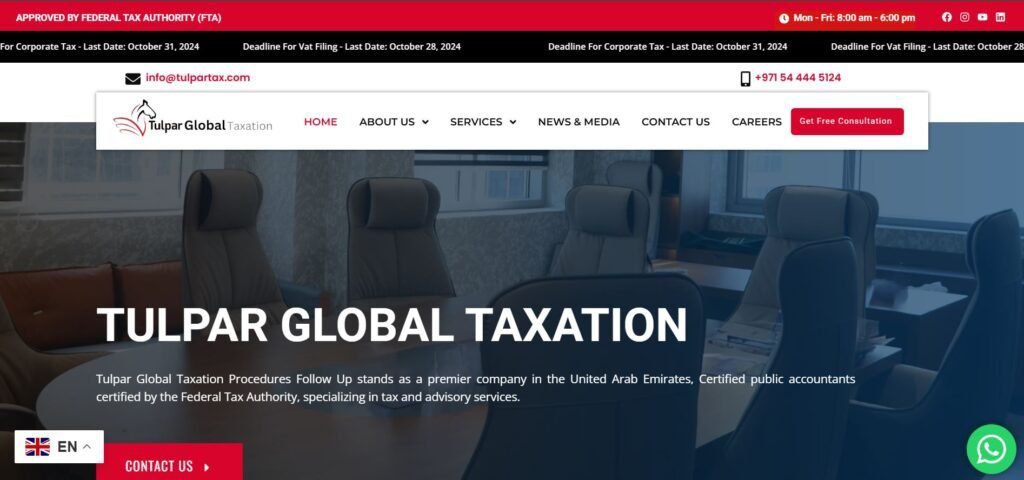

Tulpar Global Taxation plays a crucial role in enhancing Free Zone companies’ compliance by providing expert guidance through the complexities of UAE’s tax laws and regulatory requirements. By offering tailored solutions for tax filing, Economic Substance Regulations (ESR) compliance, and transfer pricing documentation, Tulpar ensures that businesses remain fully aligned with local legislation. Their thorough understanding of the Free Zone frameworks enables businesses to navigate the evolving tax environment with confidence, mitigating the risk of non-compliance and penalties. Tulpar’s proactive approach empowers companies to focus on growth while ensuring their operations stay compliant and strategically optimized in a competitive market.
Expertise in Tax Strategy
Tulpar Global Taxation offers highly customized and strategic solutions designed to help Free Zone companies maximize their tax benefits. With their in-depth knowledge of the UAE’s evolving tax landscape, they ensure that businesses not only benefit from the 0% tax rate on qualifying activities but also maintain strict adherence to local tax laws. Tulpar’s team of experts works closely with businesses to develop tax strategies that are aligned with their specific needs, optimizing tax advantages while safeguarding against potential risks. Their deep understanding of the regulatory environment provides businesses with a solid foundation to thrive in the competitive UAE market.
Comprehensive Compliance Support
Tulpar Global Taxation offers end-to-end support for Free Zone businesses, ensuring they remain fully compliant with all regulatory and tax requirements. From tax filing and Economic Substance Regulations (ESR) compliance to managing complex transfer pricing documentation, Tulpar’s team handles the intricate details to help businesses minimize risk. By working with Tulpar, companies can be confident that they are meeting all legal obligations, thereby reducing the risk of costly penalties or audits. Tulpar’s comprehensive approach allows businesses to focus on their core operations, knowing that their tax and compliance matters are in expert hands.
Strategic Insights
With a deep and thorough understanding of the UAE’s tax laws and regulations, Tulpar Global Taxation provides invaluable insights into how businesses can structure their operations most efficiently. The firm’s strategic expertise helps businesses navigate the complexities of the tax system, ensuring they maximize profitability while minimizing their tax liabilities. By applying a holistic approach, Tulpar helps companies optimize their corporate structures, identify tax-saving opportunities, and ensure long-term sustainability in the UAE’s dynamic business environment. This combination of knowledge and practical application positions businesses to make informed decisions that support growth and profitability.
Conclusion
Corporate tax in UAE Free Zone companies presents both significant opportunities and substantial responsibilities. While the 0% tax rate on qualifying activities offers an unparalleled advantage, businesses must also remain diligent about complying with the regulatory framework. The Free Zones in the UAE have been designed to attract foreign investment and foster innovation, but companies must align with the requirements that come with this privilege. Strict adherence to guidelines related to operational activities, reporting, and other tax-related obligations is crucial for avoiding penalties or even the loss of tax exemptions.
To fully leverage the benefits of the tax system, businesses should work closely with experts in the field. Consulting firms like Tulpar Global Taxation can provide the strategic advice necessary to navigate the complexities of the UAE’s tax regime. By doing so, companies can safeguard their tax status, avoid potential pitfalls, and ultimately drive sustainable growth and long-term profitability. In the fast-evolving UAE business landscape, staying ahead of the changes in corporate tax regulations is essential. Partnering with experienced tax professionals ensures that businesses can adapt to new rules efficiently and remain competitive, while fully capitalizing on the incentives offered by the UAE’s Free Zones.
Contact Us:
- Website: www.tulpartax.com
- Email: info@tulpartax.com
- Phone: +971-54 444 5124


